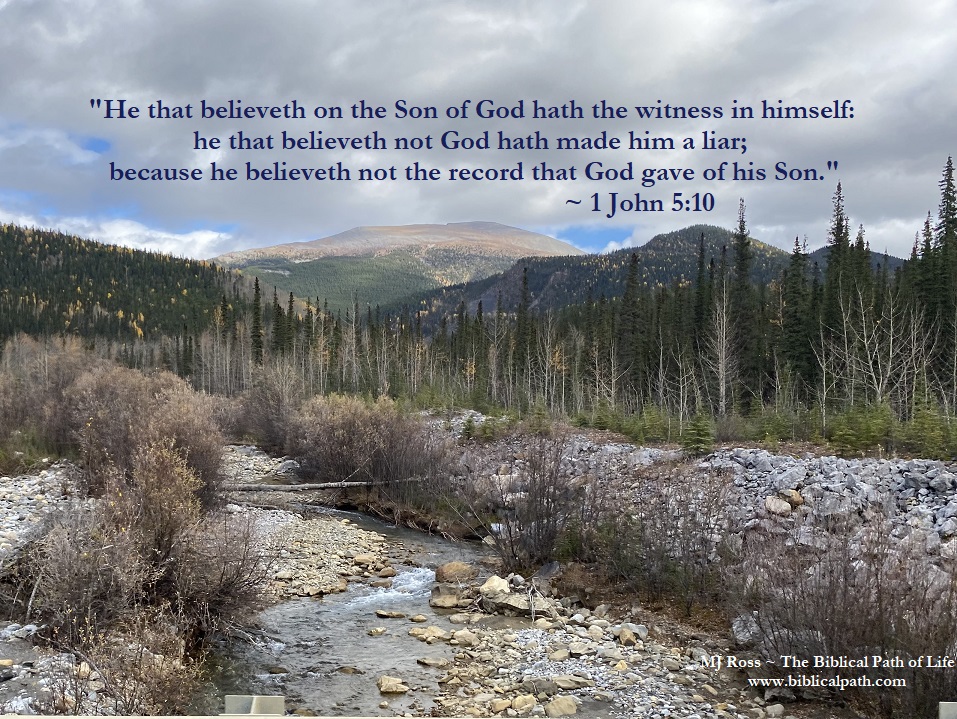
“The next day John seeth Jesus coming unto him, and saith, Behold the Lamb of God, which taketh away the sin of the world.”
John 1:29
God always keeps His promises. He promised from the beginning of time to send One who would deliver man from the bondage of sin and death (see Genesis 3:15). All throughout the Old Testament, one can read that God constantly reminded His people of that promise. When you study the Old Testament, you should recognize that God even added more clues to the specific details of that coming all throughout the Old Testament – so the people would be watching and waiting for that day. Specifically, so that they would recognize Jesus once He came. Read again how the last book of the Old Testament, Malachi, reminds us of that promise. “Behold, I will send my messenger, and he shall prepare the way before me: and the Lord, whom ye seek, shall suddenly come to his temple, even the messenger of the covenant, whom ye delight in: behold, he shall come, saith the LORD of hosts”(Malachi 3:1). God revealed that He would send a special messenger to prepare the way before God, Himself, came born as Jesus. My messenger was “John the Baptist;” and the Lord, whom they seek, was “Jesus.” God compared the coming of Jesus with “a refiner’s fire, and like fullers’ soap” (see Malachi 3:2). A refiner’s fire means “a precious metal that was heated until it became a liquid so that all of the impurities could rise to the top to be removed.” A fullers’ soap means “used to rub and scrub clothing until the stains were washed away.” Each of these can be compared to what Jesus would do when he came – remove the impurities and sin from man.
Read another clue God’s people were to look for. “Behold, I will send you Elijah the prophet before the coming of the great and dreadful day of the LORD” (Malachi 4:5). God told His people of “Elijah the Prophet” (the Messenger) who would come. About four hundred years passed between the Old Testament and New Testament writings. As you come to the New Testament, we are to recognize that God sent a messenger to prepare the way of the Lord – just as He promised He would do. In Luke 1, we read of an angel appearing to a priest, Zacharias, who told him that he and his aged wife would have a son, John. Notice the special son that this would be. “13. But the angel said unto him, Fear not, Zacharias: for thy prayer is heard; and thy wife Elisabeth shall bear thee a son, and thou shalt call his name John … 15. For he shall be great in the sight of the Lord … 16. And many of the children of Israel shall he turn to the Lord their God. 17. And he shall go before him in the spirit and power of Elias, to turn the hearts of the fathers to the children, and the disobedient to the wisdom of the just; to make ready a people prepared for the Lord” (Luke 1:13-17). Understand that Elijah is spelled Elias in the New Testament. The son named John is who we have come to know as John the Baptist – for he preached and “baptized” repentance.
“29. The next day John seeth Jesus coming unto him, and saith, Behold the Lamb of God, which taketh away the sin of the world. 30. This is he of whom I said, After me cometh a man which is preferred before me: for he was before me. 31. And I knew him not: but that he should be made manifest to Israel, therefore am I come baptizing with water” (John 1:29-31). Jesus came just as God promised. John introduced Him. “Behold the Lamb of God, which taketh away the sin of the world” (John 1:29b). Understand that when Jesus came, He was as a refiner’s fire. Jesus and His Words purified some people, while others rejected Jesus’ Words. However, everyone heard of Him. “And immediately his fame spread abroad throughout all the region round about Galilee” (Mark 1:28). If nothing else, Jesus draws man to a time of decision.
The most important thing to recognize about this information can be summed up best by the words John recorded for us to read. “6. There was a man sent from God, whose name was John. 7. The same came for a witness, to bear witness of the Light, that all men through him might believe. 8. He was not that Light, but was sent to bear witness of that Light. 9. That was the true Light, which lighteth every man that cometh into the world. 10. He was in the world, and the world was made by him, and the world knew him not. 11. He came unto his own, and his own received him not. 12. But as many as received him, to them gave he power to become the sons of God, even to them that believe on his name” (John 1:6-12). John did the job God had for him to do. He was a witness who told others of the Light, Jesus (see John 8:12). Jesus was in the world, and the world was made by Him, yet the majority of God’s people did not recognize or acknowledge Jesus when he came. However, those who did receive Jesus as the One promised from the beginning and believed upon Him, became the sons of God.
Have you done more than heard of Jesus?
Have you acknowledged and believed upon Jesus, becoming a child of God?
How to be saved link.





